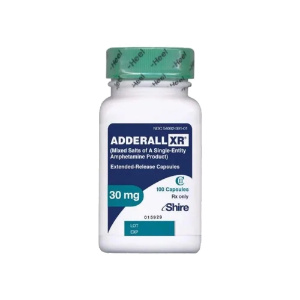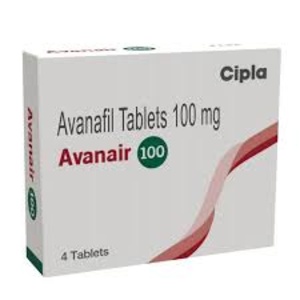ey takeaways:
Many things in life can contribute to occasional or chronic constipation. Your diet, lifestyle, and health conditions can all contribute to your bowel habits.
Several medications and supplements can also cause constipation. Opioid pain relievers, iron supplements, and tricyclic antidepressants are three common offenders.
If you think you’re experiencing constipation from a medication or supplement, it’s recommended to talk to your pharmacist or healthcare provider for advice. They may recommend taking a laxative, switching up your medication routine, or trying another supportive care measure.
Table of contents
01:53How to Relieve Constipation Caused by Medications0 seconds of 1 minute, 53 secondsVolume 90%Reviewed by Alexandra Schwarz, MD | June 28, 2024Perhaps you’re all stopped up and can’t find an obvious reason why. Constipation has many causes, including your lifestyle and any medical conditions you may have. But if you look over your medication list, you might find one that could be causing the problem.
But what is constipation, exactly? If your stools are too hard or too small, or if pooping is difficult or infrequent, you likely have constipation. Officially, constipation is defined as having fewer than three bowel movements per week. It can be uncomfortable and even painful, and medications are often at fault for causing or worsening your symptoms.
Here, we’ll talk about eight medications and supplements that are often linked to constipation.
1. Opioid pain relievers
If you have moderate to severe pain or recently had surgery, your healthcare provider may have prescribed an opioid pain reliever. Common opioids include:
Morphine (MS Contin)
Oxycodone (OxyContin)
Tramadol (Qdolo, ConZip)
Hydromorphone (Dilaudid)
Opioid medications can provide pain relief when you take them as recommended. Still, they have many possible risks and side effects. If you take an opioid medication, you’re likely to have constipation. This is because they can slow down your intestines and make it harder to get rid of stool. Constipation from opioids doesn’t usually get better over time.
In many cases, your healthcare provider may recommend taking a laxative in advance to prevent constipation from opioids. And if you develop it, they may recommend a combination laxative product. Prescription medications, like Amitiza (lubiprostone), are also approved to relieve opioid-induced constipation when needed.
2. Iron supplements
Iron supplements are important for many people. They treat conditions like iron-deficiency anemia, and some people take them for everyday health. You might take iron as a stand-alone product — like ferrous sulfate or ferrous gluconate — but many multivitamins also contain iron.
A common side effect of iron supplements is constipation, and it’s possible that your stool may appear darker than normal. Make sure to loop in your healthcare provider if constipation is becoming a problem or doesn’t go away.
3. Tricyclic antidepressants
Tricyclic antidepressants — like amitriptyline and desipramine (Norpramin) — treat various health conditions, such as depression, anxiety, and insomnia.
However, these medications have “anticholinergic” effects. Anticholinergic medications block the effects of a chemical called acetylcholine, and this can sometimes lead to unintended side effects. Among these effects is a risk of constipation because they slow down your intestines. Anticholinergic medications can also cause side effects like dry mouth, decreased urination, and blurry vision.
In most cases, constipation isn’t desirable. But it’s sometimes advantageous. In fact, because these medications can help slow down your digestive tract, tricyclic antidepressants are sometimes recommended to treat diarrhea from health conditions like irritable bowel syndrome.
4. NSAIDs
Non-steroidal anti-inflammatory drugs (NSAIDs) — like ibuprofen (Advil, Motrin) and naproxen (Aleve) — are go-to options for pain and inflammation. Yet, they can sometimes cause constipation.
These medications are usually taken as needed. If you develop a minor headache or muscle pain, you can take an NSAID to relieve your discomfort. But some people need to take them consistently for chronic conditions, like osteoarthritis.
If you take an NSAID every day (or close to it), they’re more likely to stop you up. This is especially true with higher doses.
5. Antihistamines
If you take an antihistamine like diphenhydramine (Benadryl) routinely, it could contribute to constipation. You can buy antihistamines over the counter (OTC) to treat allergy symptoms, like a runny nose.
What’s more, antihistamines manage more than just allergies. A different group of antihistamines can manage heartburn symptoms. Called histamine-2 receptor antagonists (H2RAs), this includes medications like famotidine (Pepcid) and cimetidine (Tagamet HB). H2RAs can also cause constipation.
Why is this? Like tricyclic antidepressants, antihistamines have anticholinergic effects. If you take them consistently or for a long period of time, you’re more likely to experience constipation. Occasional doses don’t usually have this effect.
Newer antihistamines — like loratadine (Claritin) and fexofenadine (Allegra) — are also less likely to cause constipation.
6. Medications for overactive bladder
If you have an overactive bladder, two options that can relieve your symptoms are oxybutynin and tolterodine (Detrol).
As for antihistamines, these overactive bladder treatments are anticholinergic medications. This means that they can cause constipation, especially if you take them regularly.
If you’re taking an overactive bladder medication and constipation becomes an issue, consider asking your healthcare provider about alternative options. For instance, oxybutynin ER (extended release) and the oxybutynin patch often cause less constipation than traditional oxybutynin.
7. Certain blood pressure medications
If you take one or more blood pressure medications, you know how important they are. Controlled blood pressure levels lower your risk of complications like stroke, heart attack, and heart disease. And even though they’re important, they can still cause side effects, including constipation.
Not all blood pressure medications work the same way to lower your blood pressure, so they can affect your body in different ways. And some blood pressure medications are more likely to cause constipation than others. These blood pressure medications are often linked to constipation:
Amlodipine (Norvasc)
Diltiazem (Cardizem)
Clonidine (Catapres)
If you’re taking a blood pressure medication and constipation is becoming an issue, reach out to your healthcare provider. They can look at your situation and see if the blood pressure medication — or something else entirely — is the likely suspect.
8. Certain nausea medications
Some nausea medications are also linked to constipation. Also known as antiemetics, they’re typically used to prevent nausea and vomiting after surgery or chemotherapy. But your healthcare provider may prescribe them for other causes of nausea, too.
One common nausea medication that can cause constipation is ondansetron (Zofran). Constipation is more likely to happen with long-term use (as opposed to a few doses). Promethazine (Phenergan) can cause constipation too, but it’s technically an antihistamine.
How to treat constipation caused by medication
If you have constipation, you’re likely looking for a solution to the discomfort that often comes with it. Thankfully, a few options are available.
Keep in mind: Before changing your diet or starting a new medication or supplement, it’s recommended to talk to your healthcare provider. You and your provider can work together to decide if these changes are safe and appropriate for you.
OTC medications for constipation
Many OTC medications for constipation are available online and at pharmacies throughout the U.S. Many are meant for short-term use, while others can be taken long term when recommended by your healthcare provider. Your provider may suggest that you take one or more of these laxatives to treat your symptoms:
Docusate sodium (Colace)
Senna (Senokot)
Bisacodyl (Dulcolax)
Psyllium (Metamucil)
Methylcellulose (Citrucel)
Polyethylene glycol (Miralax)
Glycerin suppositories
Magnesium hydroxide (Milk of Magnesia)
Magnesium citrate (Citroma)
Saline enema (Fleet enema)
Mineral oil
However, medication isn’t your only option. You can also talk to your healthcare provider or dietitian about adjusting your diet or lifestyle to help relieve your symptoms.
Foods that help with constipation
A number of dietary changes can help improve your constipation symptoms. You and your healthcare provider or dietitian can decide which options are right for you. Potential options include:
Eating foods high in fiber
Eating foods that contain prebiotics or probiotics
Drinking more water
Drinking hot tea
The bottom line
Common medications that cause constipation include opioid pain relievers, iron supplements, and tricyclic antidepressants. Certain blood pressure and nausea medications can too.
If you think one of your medications or supplements is causing constipation, consider talking to your pharmacist for more details. Since the list provided above isn’t all-inclusive, they can look at your medication list and see if any may be contributing to your symptoms.

Find Your Focus While Working
As an alternative theory, (and because Latin scholars do this sort of thing) someone tracked down a 1914 Latin edition of De Finibus which challenges McClintock’s 15th century claims and suggests that the dawn of lorem ipsum was as recent as the 20th century. The 1914 Loeb Classical Library Edition ran out of room on page 34 for the Latin phrase “dolorem ipsum” (sorrow in itself). Thus, the truncated phrase leaves one page dangling with “do-”, while another begins with the now ubiquitous “lorem ipsum”.
Whether a medieval typesetter chose to garble a well-known (but non-Biblical—that would have been sacrilegious) text, or whether a quirk in the 1914 Loeb Edition inspired a graphic designer, it’s admittedly an odd way for Cicero to sail into the 21st century.
Second, use lorem ipsum if you think the placeholder text will be too distracting. For specific projects, collaboration between copywriters and designers may be best, however, like Karen McGrane said, draft copy has a way of turning any meeting about layout decisions into a discussion about word choice. So don’t be afraid to use lorem ipsum to keep everyone focused.
One word of caution: make sure your client knows that lorem ipsum is filler text. You don’t want them wondering why you filled their website with a foreign language, and you certainly don’t want anyone prematurely publishing it.






